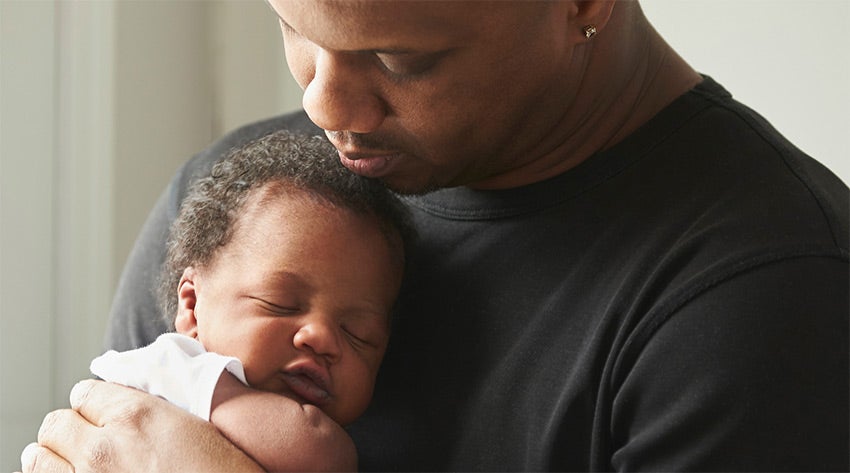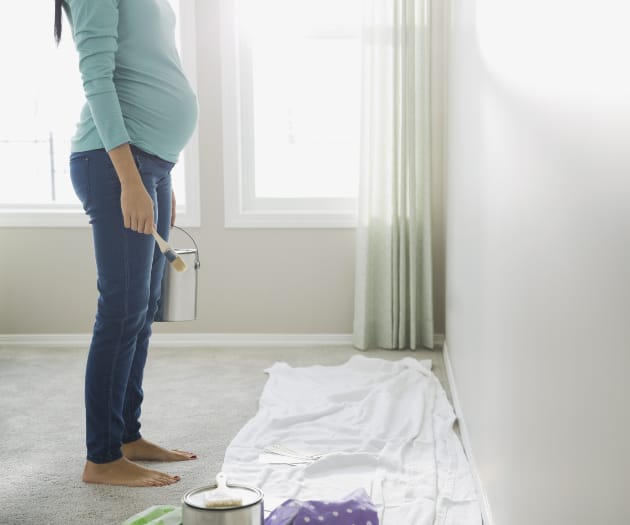Introduction
This article was reviewed in Nov 2023 and information provided in it may be subject to change as statutory maternity rights in Ireland evolve.
Before you get the additional job title of ‘mum’ it’s a good idea to take care of more official business. Just in case you’re wondering, you need to tell your employer at least four weeks before you’re due, in writing. Although you probably won’t be able to hide your bump under loose clothing that long anyway. If the baby comes before those final four weeks and you haven’t told your boss yet, you have 14 days from the birth to send them written notice.
Before you get to week 36 here’s a few things worth knowing about maternity leave and maternity pay to make sure you have everything under control before things get real.
Am I eligible for statutory maternity pay?
To be eligible for Statutory Maternity Pay (SMP) you need to:
-
Have enough social insurance (PRSI) contributions
-
Give your employer adequate notice (more on this below)
-
Proof of pregnancy - ask your doctor for a certificate that confirms when your baby is due. Give this certificate to your employer. Your employer will give you a MB2 certificate for maternity benefit. If you are self-employed you are provided with a MB3 certificate.
-
Apply for maternity Benefit in the Maternity Benefits section of the DEASP, at least six weeks before your baby is due if you’re employed or 12 weeks before if you’re self-employed.
To apply online head to the Maternity Benefits Section or through Mywelfare.ie.
Put this one in your diary: Four weeks before starting your SMP, you need to give your employer:
-
Written warning that you intend to start maternity leave.
-
A letter from your doctor confirming your baby’s due date – this is so your employer can fill in an MB2 and give it to you. You’ll need this to apply for Maternity Benefits.
If your employer isn’t doing their part, you should take action:
-
Talk to your employer and get a written explanation.
-
Make a formal complaint or speak to your trade union or employees’ rep if you have one.
How long is maternity leave in Ireland?
From those who are new at work, to those who feel like part of the furniture, every new mum is entitled to at least 42 weeks with their baby. The only difference is pay – more on that later.
You don’t even have to wait until your baby is here. If you’d prefer to prepare and rest in the last weeks of pregnancy you can start your leave as early as 16 weeks before baby is due. Or you can keep working and go off two weeks before baby is set to arrive, leaving more time for cuddles.
You don’t have to take all 42 weeks. If you’re missing your job (or the pay) you can get back sooner. But the minimum time off is four weeks to recuperate, and you must give written notice four weeks before you intend to return.
How long is paternity leave in Ireland?
As the main caregiver you get up to 42 weeks, while your partner is entitled to two weeks paid leave. If you’ve adopted or used a surrogate, the nominated main caregiver can take up to 24 weeks’ paid leave, which can be followed by 16 weeks’ unpaid leave if desired. The secondary care giver can also take up to two weeks paid time off with their baby.
This applies for all parents, including if you have adopted or used a surrogate. Unless you choose to split your leave – more on that below.
How much is maternity pay?
What and how much you’re entitled to during maternity leave comes down to what’s in your contract. Employers are not obliged to pay women on maternity leave, but hopefully yours does. You may qualify for maternity benefits from the Department of Employment Affairs and Social Protection if you’ve made a certain amount of Pay Related Social Insurance (PRSI) contributions. Check with your employer to see exactly what you’re entitled to.
Telling the boss
Like we mentioned earlier, you don’t have to say anything until your 36th week of pregnancy.
Whenever you’re planning on starting maternity leave just remember that your employer needs to have four weeks’ written notice. Oh, and unfortunately your bump isn’t evidence enough, you actually have to prove your pregnancy with medical forms and appointment letters.
Once you’ve shared your big news with your boss, you can take reasonable time off for medical visits connected to your pregnancy. There’s no rule in regards to how many appointments you can attend – you’re entitled to as much time off as is needed. This includes the time it takes to travel to and from your appointments and the appointment itself.
Try and hold onto any medical evidence in regards to your appointments and where possible give two weeks’ notice of your medical visits. Your employer may request to see your appointment cards. Once baby is here you may need to make further medical visits and you’re entitled to do so 14 weeks following the birth. You’re also entitled to pay during any of the medical appointments you take in this time.








